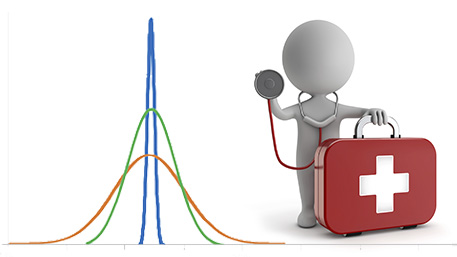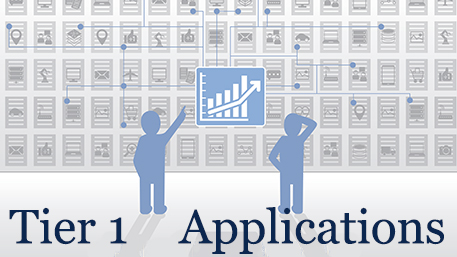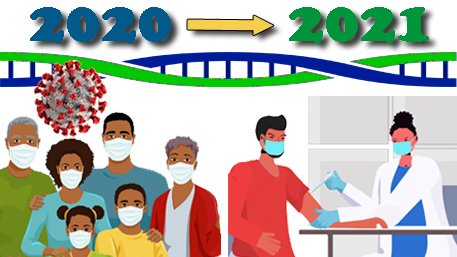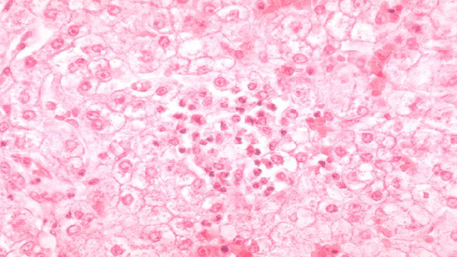Search Results
10 results for colorectal cancer
From Polygenic Risk Scores to Methylation Risk Scores: What are the Clinical Applications?

A recent study used methylation risk scores to improve predictive value of baseline models for a range of clinical diagnoses and laboratory tests. The ability to understand and predict a person’s risk of disease is an integral component of precision medicine and precision public health. Many factors, including environmental and genetic, contribute to a person’s
Posted on byTrends in Tier 1 Genomic Applications 2013-2022

The CDC Tier 1 genomic applications database can help consumers, providers, health care organizations and public health programs accelerate the translation of genomic discoveries into improved population health. Background Advances in genomics and precision medicine are proceeding at a rapid pace. Many genomic tests have reached clinical practice without clear indication as to whether their
Posted on byArtificial Intelligence in Medicine and Public Health: Prospects and Challenges Beyond the Pandemic

Though still in its infancy as a field, artificial intelligence (AI) is poised to transform the practice of medicine and the delivery of healthcare. Powered by breakthroughs in machine learning (ML) algorithms, enhanced computing power, and increasing data volume and storage capacity, AI has made noteworthy advances over the past decade across many medical subspecialties.
Posted on byThe Current Landscape of CDC Publications in Human Genomics and Public Health

In October 2021, the CDC Office of Genomics and Precision Public Health (OGPPH) launched a new, five-year initiative to strengthen public health capacity in genomics and precision medicine. The emergence of evidence-based genomic applications and lack of equity in their implementation in clinical and public health practice provided an important impetus for this initiative. To
Posted on byToward Achieving Health Equity for People with Genetic Disorders

If health equity is about making sure that everyone has the opportunity to be as healthy as possible, public health efforts to achieve health equity must include people with genetic disorders. Some might consider having a genetic disorder a health inequity itself—one present from birth and over which affected individuals have limited control. Thousands of
Posted on by 2 Comments2020: A Challenging Year of Progress for Genomics and Precision Public Health

It is time to wrap up an eventful 2020 which unfortunately was dominated by the COVID-19 pandemic. From January 2020 through November 2020, we saw a major increase in visits to our website (> 2.6 million views, compared to 2 million views in 2019 and 1.2 million views in 2018). In our year end blog,
Posted on byHappy Thanksgiving 2020: Family and Family Health History Are As Important As Ever

This Thanksgiving might not look the same as the ones before it, but some things haven’t changed. Even if you can’t see your loved ones in person, Thanksgiving is still a great time to talk to your family members about your family health history. Having one or more family members with a disease can mean
Posted on byStimulating Implementation Science in Genomics and Precision Medicine for Heart, Lung, Blood and Sleep Diseases: The Case of Familial Hypercholesterolemia

Implementation science is an emerging field of scientific inquiry that has been increasingly applied to genomics and precision medicine. In our recent papers on the state of scientific publications and NIH funding, we have identified areas of growth and limitations of the field and called for more training and workforce development for implementation science in
Posted on byProgress in Public Health Genomics Depends on Measuring Population Level Outcomes

Public health genomics is a relatively young field concerned with the effective and responsible translation of genomic science into population health benefits. In the past few years, the field has witnessed the emergence of several state public health genomics programs beyond the traditional domain of newborn screening. The field has focused on preventing disease and
Posted on byA New Public Health Assessment of the Disease Burden of Hereditary Hemochromatosis: How Clinically Actionable is C282Y Homozygosity?

This blog post is based on a recent paper by Grosse, Gurrin, Bertalli, and Allen in Genetics in Medicine. Hereditary hemochromatosis (HH) attributable to mutations in the HFE gene is the most common autosomal recessive disorder among adults of northern European origin. It occurs in 1 in 300 non-Hispanic whites in the United States. Approximately
Posted on by

